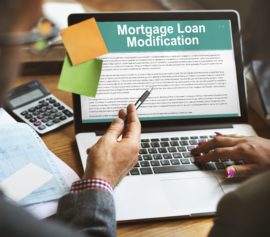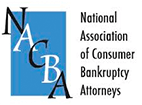In New York, How Many Times Can I Modify My Mortgage?

For struggling homeowners, getting a mortgage loan modification can at first seem like a lifeline. Unfortunately for some, however, even the new, modified rate might be too much to pay, especially if further financial disaster strikes later on. I’m sure you want to know how many times can you modify a mortgage loan in New York.
If you find yourself in this position, you may be wondering if you can get a second or third modification. The question of how many times you can modify a mortgage loan in New York does not have a single answer, as it can vary from lender to lender. In theory, however, there is no legal requirement limiting how many times you can get your loan modified if you can get the lender to agree to it.
Getting your second or third mortgage loan modification may not be easy, but in some cases, it is certainly possible. An experienced New York mortgage loan modification lawyer can help you understand your lender’s requirements and convince them that you can make your payments given another chance at modification.
If you are considering another mortgage loan modification, White Plains bankruptcy and foreclosure defense lawyer Michael H. Schwartz is here to help.
Financial Trouble Again After a Mortgage Loan Modification
 If you’ve already modified your mortgage loan once, you are probably familiar with the basics of the process. You and the bank sat down, either with each other, a mediator, or under the supervision of a bankruptcy court, and hammered out new terms for your mortgage agreement.
If you’ve already modified your mortgage loan once, you are probably familiar with the basics of the process. You and the bank sat down, either with each other, a mediator, or under the supervision of a bankruptcy court, and hammered out new terms for your mortgage agreement.
Your new agreement may include lower payments, less debt, and a different interest rate. Both parties probably expected at the time that these new terms would allow you to make your payments on time and keep your home.
However, circumstances change. Any number of factors can cause a person who was already down on their luck to no longer be able to afford even their modified payments, including:
- Losing your job
- Suffering a serious pay cut
- Death of a family member
- Unexpected property loss, such through a car accident or natural disaster
- A sudden onslaught of medical bills after a serious injury or illness
When one of these or other disasters strike, there may be nothing you can do to keep making your modified loan payments. At the law firm of Michael H. Schwartz, P.C., we understand how easily a final straw can break the camel’s back when you are already struggling with your finances. If we can convince the lender that another modification will set you back on track, there is hope for keeping your home and securing you a brighter financial future.
Understanding the Terms of Your First Modification
No two mortgage loan modifications are exactly alike. The final outcome will depend on how much you owed in the first place, how much you thought you would be able to pay, and the specific policies of your lender.
If you find yourself unable to make payments after your first modification, you will have to dive into the terms of the agreement you signed. There may be built-in procedures for what happens if your payments get off track. There may be specific guidance about whether and how you can apply for a second modification.
If you are uncertain how to interpret these terms, Michael H. Schwartz, P.C. can help you understand what you agreed to and what your options are going forward. Whatever the specific terms of your agreement, if you want another modification, you will almost certainly have to apply for it like you did the first time around.
Persuading Your Lender to Cooperate
 The hardest part of getting another mortgage loan modification will likely be convincing your lender to go along with it. If you got behind on your original mortgage agreement and then had more problems under the new one, the bank may want to give up on you and go ahead and foreclose on your house. It will probably take some serious convincing to get them to voluntarily agree to another modification or to even meet with another mediator.
The hardest part of getting another mortgage loan modification will likely be convincing your lender to go along with it. If you got behind on your original mortgage agreement and then had more problems under the new one, the bank may want to give up on you and go ahead and foreclose on your house. It will probably take some serious convincing to get them to voluntarily agree to another modification or to even meet with another mediator.
This is where an experienced New York loan modification attorney can come in. Michael H. Schwartz can help you make a strong argument that you will be able to make payments if you are given another chance to modify your mortgage. Here are some examples of arguments you might make to the bank when seeking another modification:
- Our company cut pay across the board, but I am still securely employed.
- My income has not changed. I have simply been hit with high, ongoing medical bills after a serious illness.
- After our first modification, it seemed like we could make payments, but my spouse’s sudden passing has left me unable to pay with my income alone.
These are just a few examples of specific scenarios in which a bank might consider taking another chance on you, although they would certainly not be guaranteed to do so. The primary task is to convince them that you are still bringing in a steady source of income large enough to support a new, modified payment rate. If your lender does not agree to another modification, you may find yourself in bankruptcy court to stop them from foreclosing. As an experienced bankruptcy attorney, Michael H. Schwartz will be ready to defend you there as well and to aggressively fight to help you keep your home.
Contact a Mortgage Loan Modification Lawyer in White Plains Today
If you are considering a second or third mortgage loan modification, you may be nervous about your financial future. Could you lose your home? Will you be able to get the bank into another new agreement?
You don’t have to face this scary time alone. Westchester County mortgage modification attorney Michael H. Schwartz can help you find the best option to fight back and keep your home. If you are looking to modify your mortgage in Westchester County, Putnam County, Rockland County, or anywhere in the Hudson Valley, contact us now for more information on how we can help.

Michael H. Schwartz is the largest filer of bankruptcy cases for people living in Westchester and Rockland counties in New York. A graduate of New York Law School, Michael has been licensed to practice in New York State courts since 1983. He is also licensed to practice in the U.S. Bankruptcy and District Courts for the Southern, Eastern and Northern Districts of New York and the District of New Jersey as well as the Second Circuit U.S. Court of Appeals. He is a graduate of Max Gardner’s Bankruptcy and Veterans’ Boot Camps. Several media outlets have reported on his cases or sought his insights, including The New York Times.





